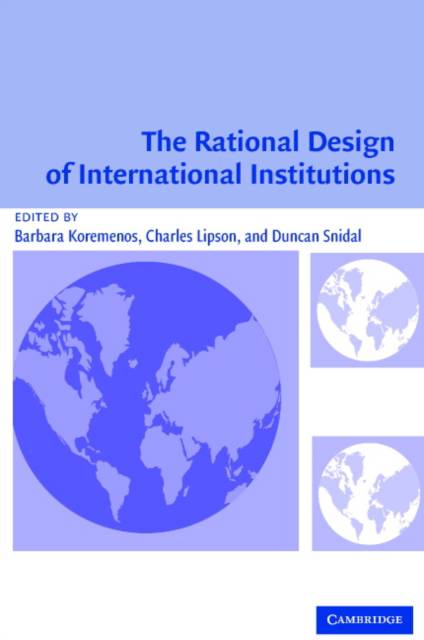
Bedankt voor het vertrouwen het afgelopen jaar! Om jou te bedanken bieden we GRATIS verzending (in België) aan op alles gedurende de hele maand januari.
- Afhalen na 1 uur in een winkel met voorraad
- In januari gratis thuislevering in België
- Ruim aanbod met 7 miljoen producten
Bedankt voor het vertrouwen het afgelopen jaar! Om jou te bedanken bieden we GRATIS verzending (in België) aan op alles gedurende de hele maand januari.
- Afhalen na 1 uur in een winkel met voorraad
- In januari gratis thuislevering in België
- Ruim aanbod met 7 miljoen producten
Zoeken
€ 53,45
+ 106 punten
Omschrijving
International institutions vary widely in terms of key institutional features such as membership, scope, and flexibility. Barbara Koremenos, Charles Lipson, and Duncan Snidal argue that this is so because international actors are goal-seeking agents who make specific institutional design choices to solve the particular cooperation problems they face in different issue-areas. Using a Rational Design approach, they explore five important features of institutions--membership, scope, centralization, control, and flexibility--and explain their variation in terms of four independent variables that characterize different cooperation problems: distribution, number of actors, enforcement, and uncertainty. The contributors to the volume then evaluate a set of conjectures in specific issue areas. (This book is Volume 55, part 4 of International Organization.)
Specificaties
Betrokkenen
- Auteur(s):
- Uitgeverij:
Inhoud
- Aantal bladzijden:
- 356
- Taal:
- Engels
- Reeks:
Eigenschappen
- Productcode (EAN):
- 9780521533584
- Verschijningsdatum:
- 8/12/2003
- Uitvoering:
- Paperback
- Formaat:
- Trade paperback (VS)
- Afmetingen:
- 155 mm x 228 mm
- Gewicht:
- 494 g

Alleen bij Standaard Boekhandel
+ 106 punten op je klantenkaart van Standaard Boekhandel
Beoordelingen
We publiceren alleen reviews die voldoen aan de voorwaarden voor reviews. Bekijk onze voorwaarden voor reviews.









